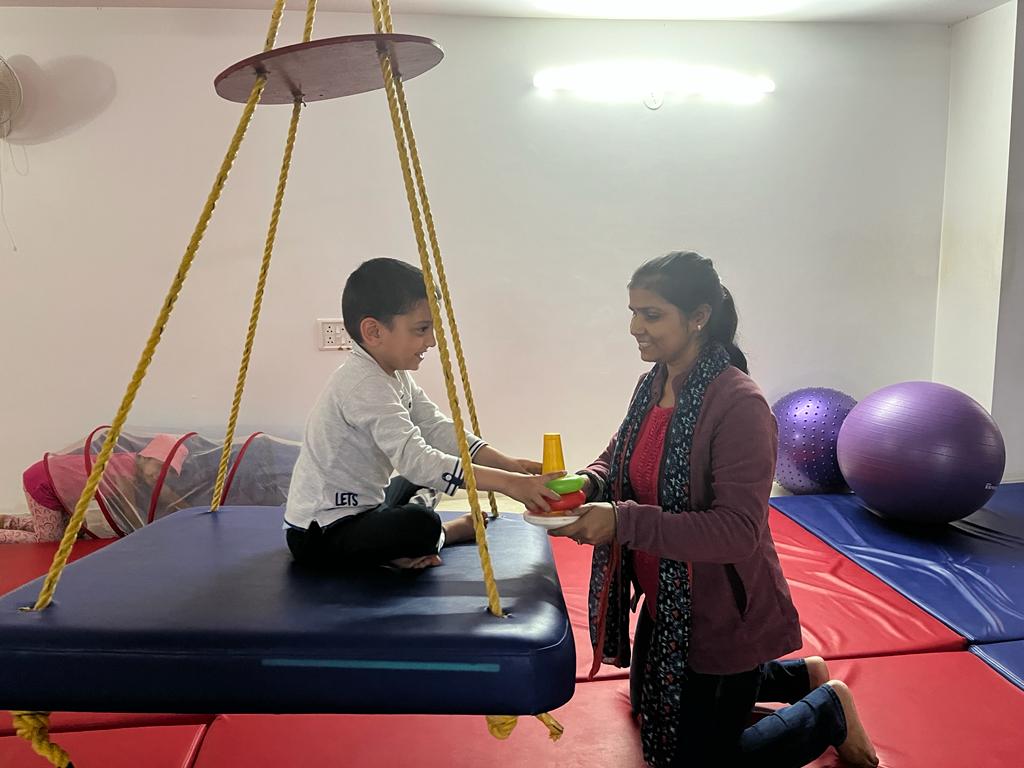
As the parent of a child with autism spectrum disorder (ASD), you’re likely no stranger to the challenges that come along with it – from communication difficulties to sensory issues and beyond, the day-to-day experiences of kids on the spectrum can be overwhelming and lead to significant anxiety and stress.
This deems it crucial to have effective coping mechanisms and sources of support in place to help your child regulate their emotions and behaviors when anxiety and stress levels rise. With the right tools and guidance, you can empower your child to navigate these difficulties and find calm amidst the storm.
Understanding Stress and Anxiety in Children with ASD –
Children with ASD often experience anxiety and stress at higher rates than their neurotypical peers. The core characteristics of ASD, like struggles with social interaction, communication deficits, and sensitivity to sensory input, can act as major triggers.
Research indicates a significantly higher prevalence of anxiety disorders among young individuals with autism spectrum disorder (ASD) compared to their non-autistic peers. Alarmingly, up to 85% of children with ASD experience symptoms of anxiety, and nearly 40% of them are diagnosed with at least one comorbid anxiety disorder, such as generalized anxiety disorder or social anxiety disorder.
This staggering disparity highlights the urgent need for early intervention and effective management strategies tailored to address the unique challenges faced by little ones navigating the complexities of ASD as well as co-occurring anxiety disorders.
Sensory Stimuli: Children may experience anxiety and stress in response to sensory stimuli that may otherwise seem minor, such as loud noises or unexpected changes. Moreover, their neurology processes sensory information differently, which can lead to feelings of emotional overwhelm, manifesting as anxiety, stress, or dysregulated behavior.
Unprecedented Social Scenarios: Social situations and unpredictable circumstances also frequently cause heightened stress for many kids on the spectrum. With neurological wiring that diverges from societal norms, navigating complex social cues and unfamiliar contexts can quickly become overstimulating for children in ways their neurotypical peers may not experience.
While these responses are alarming at the moment, it’s important to remember that anxiety and stress are not character flaws. With compassion, the right support system, and consistent care, you can equip your child with essential coping skills!
Coping Mechanisms for Children with Autism Spectrum Disorder (ASD) –
Every child is unique, so finding the specific techniques that ‘click’ and provide anxiety and stress relief for your child may involve some trial and error. Here are some coping mechanisms to explore:

Sensory Rooms/Tools: Creating a designated, calming sensory space with different textured objects, calming lights, and comfortable seating can allow your child to reset when overstimulated. Providing a space that caters to your child’s sensory needs can help them self-regulate and find a sense of calm when feeling overwhelmed. Having a variety of sensory tools available, such as squeeze balls or weighted lap pads, can also aid in grounding and self-regulation.
- Visual Schedules and Social Stories: Breaking down a routine or scenario into a visual schedule or narrative can help prepare your child for upcoming events and reduce anxiety around the unknown. Visual schedules provide a clear, predictable structure for the day, which can be especially helpful for children with ASD who thrive on routine and consistency. Studies also indicate that clear visual schedules can help reduce anxiety in children, preventing dysregulation and behaviors like self-injury.
- Mindfulness and Deep Breathing: Deep breathing exercises are a simple, yet effective way to promote relaxation and reduce stress levels. They can also help children become more aware of their emotions and develop coping strategies for managing anxiety. Assist your child in learning a calming breathing technique by taking a deep breath, holding it briefly, and then exhaling slowly. For younger children, using a pinwheel or blowing bubbles can make it fun and help them concentrate on their breathing, easing their stress.
- Stimming: Allowing your child to safely engage in their ‘stim’ can be a self-soothing technique during moments of stress. Stimming can serve as a valuable coping mechanism, helping them manage intense emotions such as anxiety, anger, fear, and excitement. Engaging in stimming activities can also help produce calming effects and aid in emotional regulation.
Early Autism Services (EAS): Providing the Right Support for the Whole Family
Of course, while your child undoubtedly experiences the most direct autism-related challenges, the impact stretches to the entire family unit. Raising a child with ASD can be emotionally, physically, and mentally draining for parents and siblings.
That’s why ensuring your family has access to resources, educational opportunities, and professional support is so vital when it comes to not just addressing your child’s needs – but your own as well. You can’t pour from an empty cup, so practicing self-care is essential!
This is where Early Autism Services (EAS) comes in; our team has years of experience supporting children and families affected by the complexities associated with autism spectrum disorder.
At EAS, our comprehensive approach includes Applied Behavior Analysis (ABA) Therapy, where our Board Certified Behavior Analysts collaborate directly with your child to minimize problematic behaviors, in addition to coping techniques for managing anxiety and stress. Additionally, we also provide parent training, empowering you with strategies and interventions rooted in ABA principles to support your child’s ongoing development at home.
The challenges associated with anxiety and stress are an unfortunate reality for many kids with ASD and their families. But with the right combinations of coping mechanisms, supportive services, and self-care practices in place, you can create more moments of peace, regulation, and growth.
EAS is here to walk alongside you on this journey, empowering your child to manage anxiety/stress while nurturing your own well-being, too. The path may be winding, but you never have to walk it alone!
So, reach out today to learn more about how we can support you and your little one. Schedule a FREE consultation call with our clinician now – +91 8929153820







Recent Comments